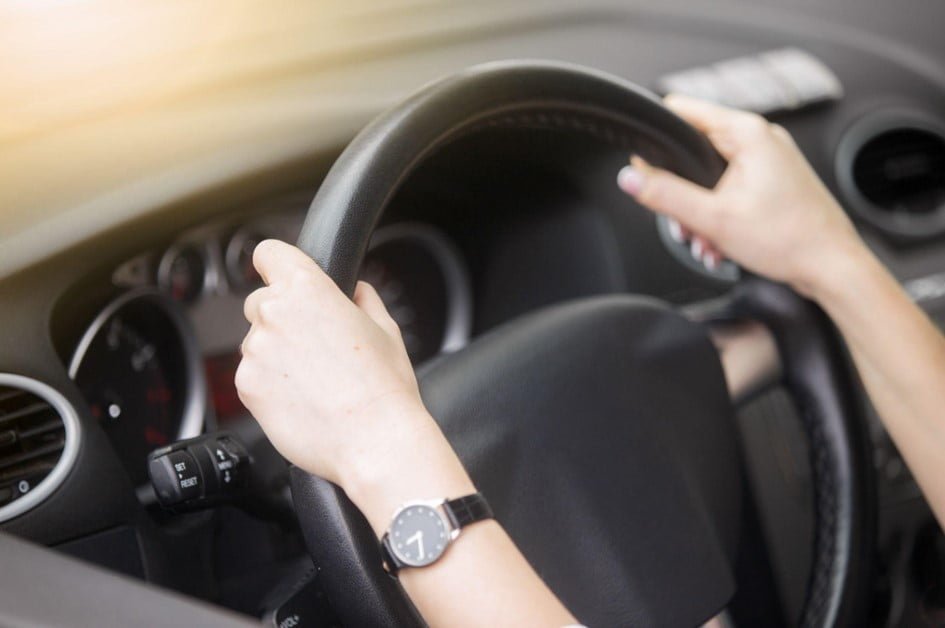
Going over the speed limit is one of Singapore’s most common traffic offences. Motorists are prone to carelessly going 60 km/h in 40 km/h zones without considering the consequences.
Not only will breaking the speed limit tarnish a clean driving record, but it will also result in a speeding fine and a possible suspension of your driver’s licence.
In addition, you’ve unknowingly endangered pedestrians and vulnerable citizens with your careless driving.
Understanding the speeding fine in Singapore is the right and safe thing to do. It saves you a lot of money in the long run and ensures a clean driving record.
Getting caught speeding will do you no favours. So if you want to keep Singapore roads safe and pedestrian-friendly, there are quite a few things to know about the speeding fine and speed limits. Let’s discuss.
1. What’s The Speed Limit In Singapore?
Breaking the speed limit will always result in a speeding fine, no matter the circumstances. In Singapore, speed limits are outlined under Section 2 of the Road Traffic Act (Restriction of Speed on Roads) Notification.
For example, some sections of the West Coast Highway have a speed limit of 30 km/h. Meanwhile, the speed limits in certain zones of Admiralty Road and Ayer Rajah Expressway range between 80-90 km/h.
However, these speed limits apply only to major thoroughfares, with a high volume of vehicles passing daily.
For some areas, like designated school zones, speed limits are kept at 40 km/h at certain times or when there is an ongoing school event. Motorists will often be alerted of the reduced speed limit through flashing traffic signs or signals.
There is also such a thing as a Silver Zone on Singapore roads, which have much lower speed limits. Silver Zones are long stretches of roads catering to pedestrians, specifically the elderly or the disabled.
Speed limits in Silver Zones vary between 30-40 km/h, ensuring maximum safety for all non-motorists or passers-by.
But unless otherwise stated (e.g., there are certain road restrictions and exceptions in place), Singapore’s speed limit is generally 50 km/h.
Where Does The 50 km/h Speed Limit Apply To?
The 50 km/h speed limit applies to all motor vehicles, be it buses, coaches, light commercial vehicles, motorcycles, etc.
However, the Land Transport Authority (LTA) has imposed additional speed limits and exceptions depending on the vehicle.
For example, buses and coaches can only travel at 60 km/h on expressways. Light commercial vehicles are limited to 60-70 km/h, and motorcycles can travel 70-90 km/h.
In tunnels, the speed limit for all motor vehicles is much lower at 50-80 km/h, with respect to the type of vehicle.
2. What Are The Penalties For Speeding In Singapore?

To answer the question “What is the speeding fine in Singapore?” it varies on the type of road, vehicle, and designated zones.
A car going 100 km/h on an expressway may have a harsher speeding offence than a bus travelling 65 km/h on the same road.
Speeding is a serious offence. Singapore’s Traffic Police will usually have a case-by-case approach in dealing with traffic offenders.
Apart from the speeding fine, there are other penalties for going above the vehicular speed limit on Singapore roads:
- Demerit Points
- Composition Fines
- Court Prosecution
- Suspension of Driving Licence
Demerit Points
Singapore has set up a demerit points system known as the Driver Improvement Points System (DIPS) to discourage motorists from speeding.
If a driver goes over the speed limit, it will land in their record and result in demerit points against them. The number of demerit points will depend on how far they’ve exceeded the speed limit.
After they’re caught speeding, road traffic authorities will notify the driver of how many demerit points they’ve received and their demerit status.
Under the DIPS, a motorist (with no previous suspension record with the Traffic Police) who has had 24 or more demerit points on his record in 24 months will be suspended from driving for 12 weeks.
But if the motorist has a previous driving suspension record and has accumulated 12 or more demerit points in 12 consecutive months, their driving licence could also be suspended.
Demerit points in Singapore are currently awarded as follows (table)
| km/h Beyond The Speed Limit | Demerit Points |
| 1-20 | 4 |
| 21-30 | 6 |
| 31-40 | 8 |
| 41 – 50 | 12 |
| 51-60 | 18 |
| 60 above | 24 |
Fortunately, demerit points won’t be on your record forever. We’ll discuss below how you can erase them.
Removing Demerit Points From Your Driving Record
Say, for example, you’ve received 6 demerit points for going over 25 km/h in a 40 km/h zone. If you exhibit good driving behaviour in the next 12 months without any new driving offences, you can expect your demerit points to be removed.
Additionally, if you qualify for the Safe Driving Course and complete it, you can remove 4 demerit points.
So how do you qualify for the SDC? The conditions are as follows:
- You have a valid driver’s licence.
- You have no suspension record and accumulated 8-23 demerit points.
- You have a prior suspension record and have accumulated 4-11 demerit points.
Drivers with a probationary status cannot qualify for SDC demerit points removal. The same applies to drivers who’ve had their driver’s licence disqualified by the Court or are liable for a driver’s licence suspension.
Further, you can’t take the SDC if you’ve already completed the course in the last year. Drivers can only take the SDC twice in 10 years.
Composition Fines
A composition fine refers to money paid to avoid court prosecution. Composition fines will depend on the vehicle’s weight and how much the driver has exceeded the speed limit.
For example, minor speeding offences that involve going above 40 km/h or less will result in a composition fine instead of Court prosecution.
You will receive a ticket notice stating “Offer of Composition,” payable at any AXS station.
As of writing, composition fines range from $150-$300 for light vehicles, and $200-$400 for heavy vehicles, depending on how much the driver has exceeded the speed limit.
Court Prosecution
You’ll have committed a serious driving offence if you exceed the speed limit by more than 40 km/h. In this case, you won’t receive an Offer in Composition. Instead, you’ll need to face prosecution in Court.
For repeat offenders who have exceeded the 40 km/h speed limit in several instances, the Court is within its discretion to enact a punishment three times that of a first-time offender.
Repeat offenders may also expect up to 10 years in jail.
Suspension Of Driving Licence
According to the Road Traffic Act, your driving licence may be suspended if it’s not in the public interest for you to hold a licence.
This punishment is often meted out to serious driving offences, wherein the driver is deemed incompetent to operate a motor vehicle.
You may be liable for revocation or suspension of your driving licence, depending on your driver’s status and record:
Non-Probationary Drivers
Drivers who have not been suspended before but have accumulated 24 or more demerit points within 24 consecutive months will be suspended for 12 weeks.
Drivers with a prior suspension record and who have accumulated 12 or more demerit points within 12 consecutive months will also be liable for suspension.
The suspension length will often depend on the number of times the driver has been previously suspended.
Probationary Or New Drivers
New or probationary drivers who’ve gathered 13 or more demerit points will have their licence revoked in the same year.
This renders the licence invalid, and the driver will have to reapply and retake all required driver’s tests to get a new licence.
Conclusion About Speeding Fine In Singapore
Contrary to popular belief, there is no single value attributable to the speeding fine in Singapore. The fine varies on the nature of the driving offence, road type, motor vehicle type, speeding offence, and other factors.
Regardless of their driver’s status (probationary or non-probationary), it’s their responsibility to adhere to the road speed limit.
Doing so will not only prevent them from accumulating demerit points. It’s the right thing to do to ensure the roads are safe for pedestrians and fellow law-abiding motorists alike.
For more information, contact Tembusu Law. We’re a law firm offering various legal services in Family/Divorce Law, Corporate Law, Litigation, Bankruptcy, Criminal Law, and many more. Our experienced criminal lawyers in Singapore and divorce lawyers in Singapore will offer personalised legal advice tailored to your case.
All first-time clients will get a free 30-minute consultation. Our Singapore lawyers will offer personalised legal advice, depending on your case.
Frequently Asked Questions About Speeding Fine Singapore
What Is The Maximum Speed Limit In Singapore?
Generally, Singapore follows a 50 km/h maximum speed limit unless otherwise stated. There may also be designated areas like school zones and Silver Zones, where the speed limit is reduced.
Can I Still Drive If I Have 12 Demerit Points In Singapore?
No. Your licence will be revoked if you’re a probationary driver and have accumulated 12 demerit points. You will need to reapply for another licence and retake the necessary driving tests before you can drive again.
How Long Before Demerit Points Are Removed In Singapore?
You will need 12 months of clean driving record without accumulating any more demerit points until they return to 0.
What Happens If You Have 24 Demerit Points In Singapore?
If you have 24 or more demerit points, you’ll need to take the Driver Improvement Points System Re-Training Course. Your licence may also be liable for suspension.